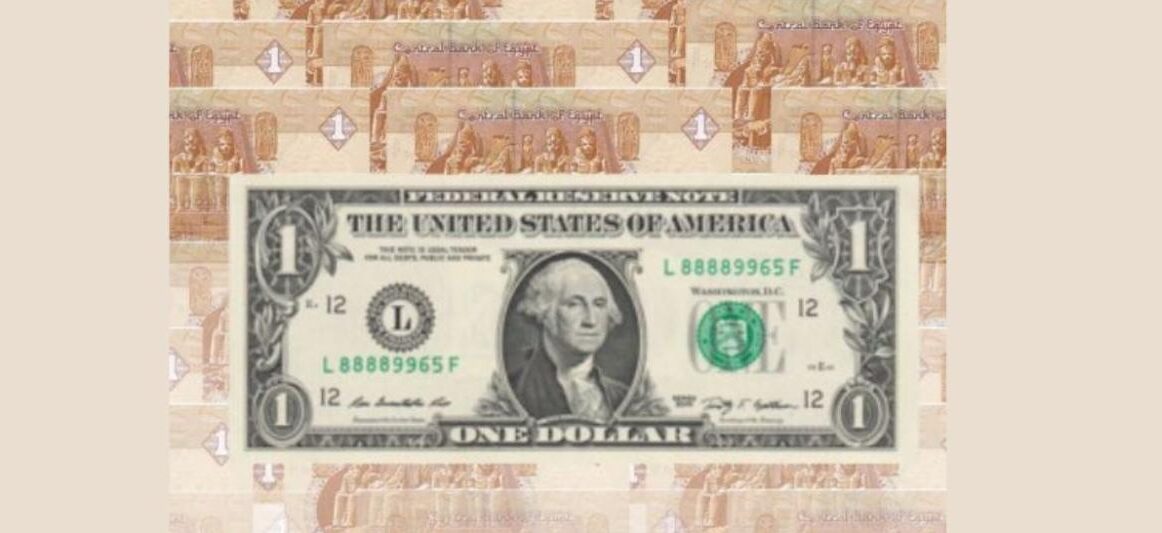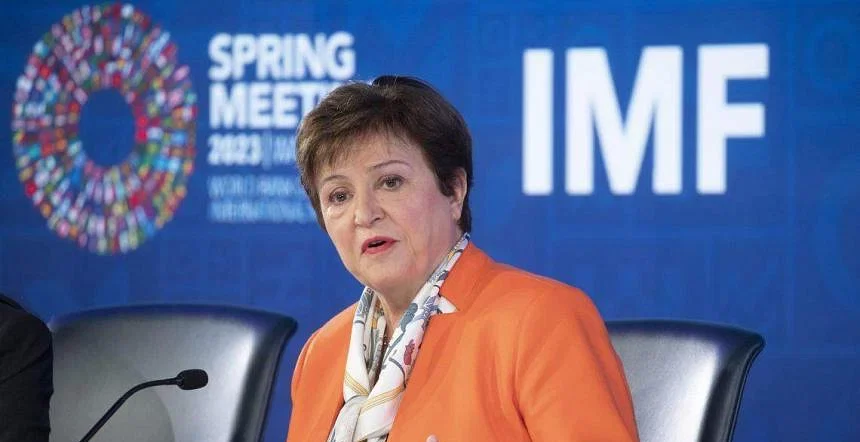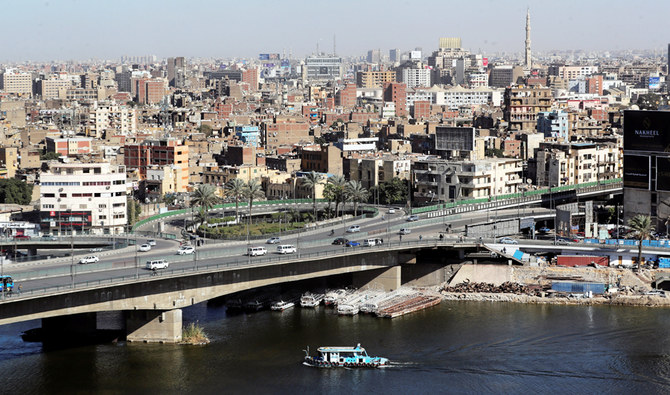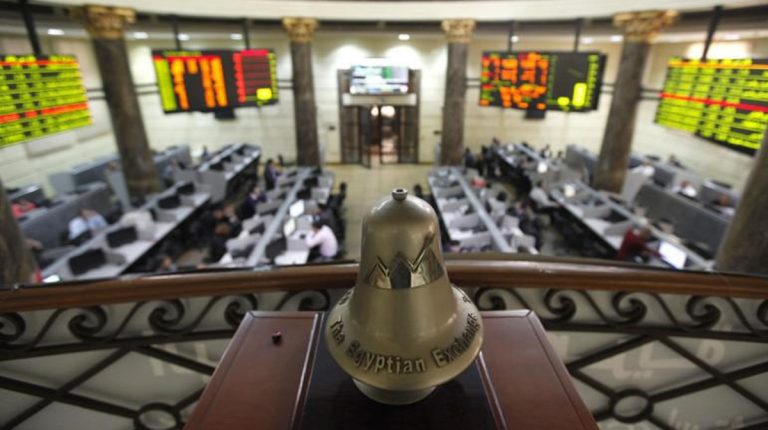In the face of economic headwinds, the Egyptian Pound (EGP) has been on a downward slope. Its depreciation, now at its lowest ebb in years, reverberates across the entire economic spectrum. This freefall not only affects the day-to-day purchasing power of Egyptians but also creates ripple effects, impacting imports, exports, and foreign investor confidence.
Fourth devaluation
Egypt finds itself at a pivotal juncture in its economic journey, poised to embark on a fourth wave of EGP depreciation against the US dollar. This decision comes as the nation remains steadfast in fulfilling its obligations under the $3 billion loan program with the International Monetary Fund (IMF). A key facet of this commitment is the adoption of a flexible exchange rate, a move with far-reaching implications for the local market.
This week, several renowned global financial institutions have forecasted a further weakening of the EGP against the US dollar. The escalating economic challenges in Egypt have prompted these projections, with experts emphasizing the necessity of EGP devaluation to alleviate mounting pressures on the nation’s economy.
Ferid Belhaj, the vice president of the World Bank for the Middle East and North Africa, recently emphasized that Egypt is grappling with a multitude of crises, creating a compelling case for EGP devaluation. Belhaj underlined the critical role of this measure in mitigating the economic strains currently burdening the country. Meanwhile, Kristalina Georgieva, the managing director of the IMF, issued a stark warning, asserting that Egypt’s foreign exchange reserves could be severely depleted if the nation delays the much-needed action of further depreciating its local currency. Georgieva’s statement underscores the urgency of addressing the economic challenges that Egypt faces, suggesting that inaction may come at a significant cost.
Belhaj and Georgieva made their statements during the IMF/World Bank Group annual meetings held in Marrakech, within which a high-level Egyptian delegation is participating in a bid to push forward the much-delayed reviews of the loan program the Fund approved for the country in December.
HSBC and Fitch Solutions are among the international institutions that projected the EGP to be devaluated by 25% and over 18%, respectively, before the end of 2023.
Morgan Stanley, Moody’s forecasts
Earlier this month, Egypt experienced a significant setback in its sovereign credit ratings. Morgan Stanley, a leading global financial institution, revised its rating for Egypt’s sovereign credit to a “Dislike Stance” from “Neutral.” This move was prompted by the nation’s delays in fulfilling its commitments to the IMF, particularly concerning the adoption of a more flexible exchange rate regime.
Moody’s, a global credit rating agency, also took a similar step by downgrading Egypt’s sovereign credit rating from B3 to Caa1, while concurrently changing the outlook from negative to stable. This decision was driven by several factors, notably the acute foreign currency shortage Egypt currently faces, along with the escalating external debt service payments the country is expected to grapple with over the next two years.
The downgrading of Egypt’s sovereign credit ratings by prominent financial institutions reflects growing concerns regarding the nation’s economic challenges and its adherence to commitments made to international organizations like the IMF. These credit-rating revisions serve as a signal of caution, indicating the need for prompt and effective measures to address the ongoing economic issues facing Egypt.
This week, the IMF expected the interest rates spending in Egypt to jump to 7% of GDP, expecting it to go higher at a rapid pace over the coming few years.
Presidential elections
Speaking to Business Monthly, Ramona Moubarak, head of MENA Country Risk at Fitch Solutions, said that when the National Election Authority set elections in Egypt for early December 2023, the balance tipped in favor of delaying all reforms until after it ends.
Egyptian President Abdel Fattah El-Sisi has affirmed on several occasions that no further devaluation will be implemented over the short term to avoid further strains.
“In our previous research, we highlighted the possibility that the Central Bank of Egypt could keep the exchange rate artificially stable at EGP 31 per 1 USD until after the presidential elections,” Moubarak said.
This is not only because of the elections but also due to favorable base effects that will now come first in October 2023 and then in February 2024 (the CBE devalued the EGP in October 2022 and February 2023),” she explained.
By delaying the devaluation, inflation will fall to between 20%-25% by February 2024, Moubarak added.
Parallel market
Associate Professor of Finance and Fintech at Kingston Business School in London Nashwa Saleh has also excluded applying a further devaluation to the EGP till after the presidential elections race. She explained that the local market is experiencing “a serious situation” when it comes to the several rates the US dollar is traded for.
In Egypt’s complex economic landscape, a stark contrast exists among various USD exchange rates, each with its own distinct value. The official rate stands at approximately EGP 31 for 1 USD, while the parallel market commands a higher value of over EGP 43 for 1 USD, according to Saleh.
Additionally, the non-deliverable forwards (NDFs) market reports a rate of EGP 44 for 1 USD. As these exchange rates diverge, the credit default swap (CDS) for Egypt recently surged to an unprecedented 1800 points, she said. It’s notable that traders and investors predominantly engage in transactions using the rates offered in both the parallel market and NDFs, with many questioning the accuracy and practicality of the official rate. According to Saleh, the official rate may not accurately reflect the real economic conditions in Egypt.
Saleh has urged the reinstatement of the Foreign Exchange Auctions mechanism. This approach has been successful in stabilizing the US dollar rates in previous EGP devaluation episodes and curbing foreign currency rate fluctuations, she said.
The Foreign Exchange Auction mechanism involves allocating a predetermined quantity of foreign exchange through a competitive bidding process. The exchange rate achieved in the auction becomes the applicable rate until the next auction.
Saleh’s perspective highlights that the IMF’s review of Egypt’s loan program may not be completed until early 2024, specifically during the third quarter of the current fiscal year (FY2023/2024). However, the longer this review process is delayed, the greater the concerns among investors, and consequently, the more adverse the impact on Egypt’s investment climate.
Geopolitical tension
Addressing the recent tensions in Palestine, Moubarak emphasized the potential consequences of Israel’s decision to shut down the Tamar field. This move is expected to have a direct impact on Egypt’s Liquified Natural Gas (LNG) exports, as Egypt has increasingly relied on gas imports from Israel to sustain its LNG exports abroad.
“The closure of the Tamar field is anticipated to add more strain to Egypt’s balance of payments. This situation could potentially compel the CBE to initiate a currency devaluation earlier than both experts and the markets had previously anticipated,” she noted.
It might also result in a more pronounced devaluation in 2024 compared to the current expectations. Moubarak specifically foresees that the currency may weaken to EGP 40-45.00 per 1 USD in the first and second quarters of 2024. This projection is attributed to the buildup of import backlogs, necessitating a more substantial currency adjustment.







